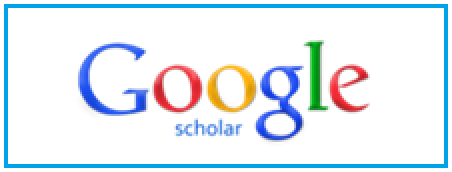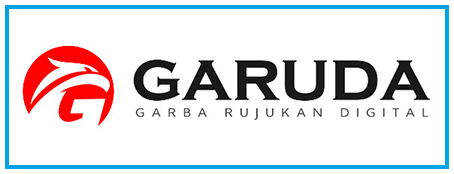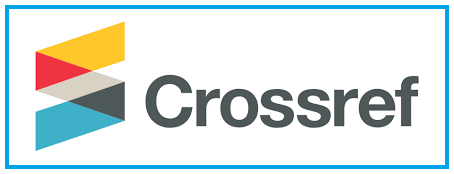TANTANGAN HUKUM DAN ETIKA (REKAYASA SOSIAL TERHADAP KEBEBASAN BERPENDAPAT DI DUNIA DIGITAL)
Keywords:
Hukum, Rekayasa Sosial, Transformasi Digital, Kebebasan BerpendapatAbstract
Pandemi COVID-19 telah memicu percepatan transformasi digital, mengubah tata cara berkomunikasi, bekerja, dan mendapatkan informasi. Namun, seiring dengan perkembangan ini, muncul ancaman baru terhadap kebebasan berpendapat dan privasi individu dalam dunia digital. Rekayasa sosial, termasuk penyebaran disinformasi dan penguatan filter bubble melalui algoritma, menjadi tantangan serius. Pandemi menciptakan lingkungan rentan di mana desinformasi dapat memanfaatkan kecemasan publik, sementara algoritma dapat mempersempit pandangan dan merusak keberagaman informasi. Regulasi yang bijaksana, literasi digital, dan transparansi platform digital diperlukan untuk melawan ancaman ini. Tantangan ini tidak hanya menggoyahkan kebebasan berpendapat, tetapi juga mengingatkan kita pada pentingnya mempertahankan nilai-nilai demokratis dan hak asasi individu di era digital ini.
Downloads
References
Banks, J. (2006). Legal and ethical issues in communication. Pearson.
Cialdini, R. B. (1987). Influence: The Psychology of Persuasion. HarperCollins.
Ess, C. (2009). Digital Media Ethics. Polity Press.
European Commission. (2020). A European Democracy Action Plan: A New Vision for Democracy in the Digital Age. https://ec.europa.eu/info/strategy/priorities-2019-2024/new-push-european-democracy/european-democracy-action-plan_en
Habermas, J. (1962). The Structural Transformation of the Public Sphere. Beacon Press.
Internet Governance Project. (2018). Digital Deceit II: A Policy Agenda to Fight Disinformation on the Internet. https://www.internetgovernance.org/pubs/digital-deceit-ii-a-policy-agenda-to-fight-disinformation-on-the-internet/
Jones, M., & Smith, P. (2018). Digital Ethics: A Comprehensive Overview. Cambridge University Press.
Kaye, D., & Quinn, M. (2019). The Rise of Digital Authoritarianism: Fake News, Disinformation, and Political Polarization. Center for International Media Assistance. https://www.cima.ned.org/publication/rise-digital-authoritarianism/
Mill, J. S. (1859). On Liberty. John W. Parker.
Napoli, P. M. (2019). Social Media and the Public Interest: Media Regulation in the Disinformation Age. Columbia Journalism Review.
Nissenbaum, H. (2009). Privacy in Context: Technology, Policy, and the Integrity of Social Life. Stanford University Press.
Pariser, E. (2011). The Filter Bubble: How the New Personalized Web Is Changing What We Read and How We Think. Penguin.
Pasquale, F. (2015). The Black Box Society: The Secret Algorithms That Control Money and Information. Harvard University Press.
Pennycook, G., & Rand, D. G. (2018). The Implied Truth Effect: Attaching Warnings to a Subset of Fake News Stories Increases Perceived Accuracy of Stories Without Warnings. Management Science, 66(11), 4944–4957. DOI: 10.1287/mnsc.2019.3473
Raz, J. (1984). The Morality of Freedom. Oxford University Press.
Roberts, L. (2017). Online Manipulation: Hidden Influences in a Digital World. Princeton University Press.
Schneier, B. (2015). Data and Goliath: The Hidden Battles to Collect Your Data and Control Your World. W. W. Norton & Company.
Solon, O. (2019). Big Tech’s Double Trouble: Political Heat From Both Sides. The Guardian. https://www.theguardian.com/technology/2019/jul/21/big-tech-facebook-google-amazon-political-heat
Steward, G. T. (2019). The Ethical Challenges of Online Disinformation. Journal of Media Ethics, 34(1), 23-37. DOI: 10.1080/23736992.2019.1578953
Sunstein, C. R. (2017). #Republic: Divided Democracy in the Age of Social Media. Princeton University Press.
Sunstein, C. R. (2018). The Cost-Benefit Revolution. MIT Press.
Tan, E. (2020). Legal Challenges in the Age of Social Media. Journal of Media Law, 12(2), 145-163. DOI: 10.1080/17577632.2020.1765120
Tufekci, Z. (2014). Engineering the Public: Big Data, Surveillance, and Computational Politics. First Monday, 19(7). DOI: 10.5210/fm.v19i7.4901
Turow, J., & Tsui, L. (2017). The Tradeoff Fallacy: How Marketers Are Misrepresenting American Consumers and Opening Them Up to Exploitation. Data Society Research Institute.
van Dijck, J., Poell, T., & de Waal, M. (2018). The Platform Society: Public Values in a Connective World. Oxford University Press.
World Health Organization. (2020). Infodemic Management: A Key Component of the COVID-19 Global Response. https://www.who.int/news-room/spotlight/infodemic-management
Downloads
Published
How to Cite
Issue
Section
License
Copyright (c) 2023 SENTRI: Jurnal Riset Ilmiah

This work is licensed under a Creative Commons Attribution-NonCommercial-ShareAlike 4.0 International License.









